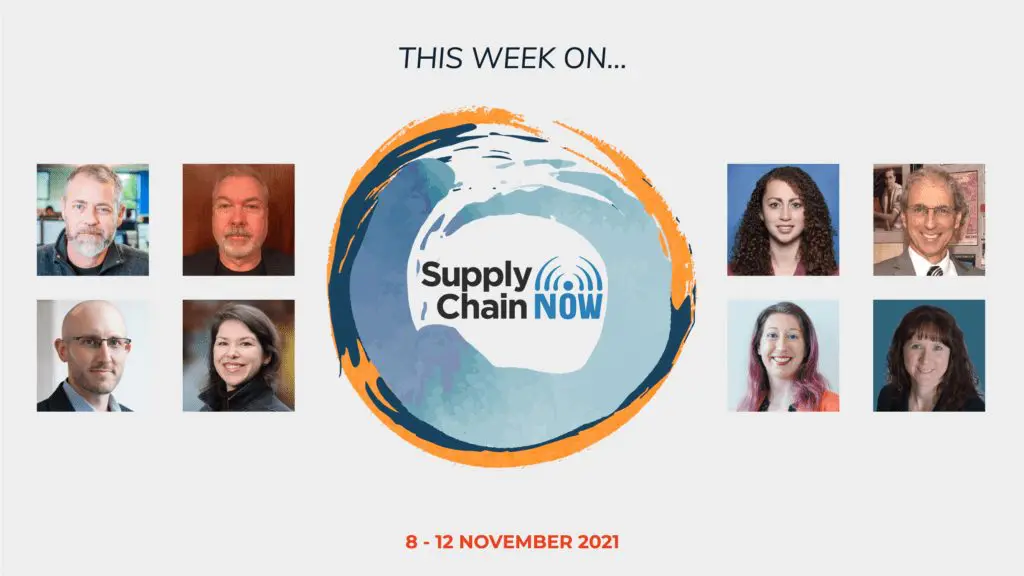
More

November 12, 2021
This Week In Supply Chain Now: November 8th – November 12th
Stay up to date on all the latest conversations, interviews, and episodes we released this week here at Supply Chain Now! We started this week off with a very special episode of Supply Chain Now. Host Scott Luton and special co-host Allison Giddens get to converse with a pair of very powerful women in the manufacturing business. Scott and Allison talk with Stacey Schroeder the President and Founder of EVelop; and the Value Improvement Project Engineer at Polaris Industries, Coral Huffmaster. Together they discuss the Key Takeaways from the 2021 Women in Manufacturing Summit. For Monday’s This Week In Business History episode, Kelly Barner explores a car invention that was created over 120 years ago. On Tuesday, we released a new episode of Supply Chain Now with Scott Luton and Greg White. This episode features two of Manhattan Associates’ reputable representatives. Rob Schaefer the Vice President of Transportation Management Sales and Gregg Lanyard the Director of Product Management for Manhattan Associates. During this episode, they all offer their perspectives on the supply chain outlook for 2022. On Wednesday we released an episode of Logistics With Purpose with host Enrique Alvarez and Kristi Porter. This episode features Michael Broidy the Senior…

best supply chain podcasts
June 4, 2024
Top 10 Supply Chain Podcasts You Should be Listening to Right Now
As the supply chain industry continues to face profound transformation, staying updated on the latest trends, innovations, and best practices in the space is crucial. With over 464 million podcast listeners worldwide, podcasts have become an invaluable resource for professionals seeking insights and inspiration. The wonderful world of the web means you can find a podcast in any niche, but how do you separate the wheat from the chaff when it comes to quality supply chain podcasts? To help you get there, we’ve curated a round-up of the top ten must-listen supply chain podcasts that will keep you informed and entertained. 1. Supply Chain Now Where to Listen: https://supplychainnow.com/program/supply-chain-now/ Hosts: Scott Luton and various industry experts. Best for: The go-to resource for insights into global supply chain performance. Featured in the Apple Podcasts business leadership charts in over 60 countries, Supply Chain Now is a renowned podcast for its extensive coverage of supply chain topics, including insights from industry leaders and experts. Hosted by Scott Luton and his team of industry-veteran co-hosts from brands like Amazon, P&G, and Nordstrom, the podcast delves into everything from logistics and transportation to technology and innovation. With a history of high-quality content and engaging…
